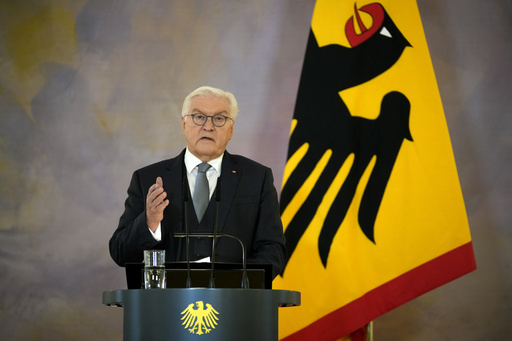BERLIN — Tech mogul Elon Musk ignited controversy after showing support for Germany’s far-right political party in a significant newspaper ahead of crucial parliamentary elections in the country, which prompted the resignation of the paper’s opinion editor in dissent.
Germany is scheduled to hold an early election on February 23, following the recent breakdown of Chancellor Olaf Scholz’s three-party coalition, stemming from disagreements on revitalizing the nation’s sluggish economy.
Musk’s guest commentary for Welt am Sonntag—a publication associated with POLITICO and under the ownership of the Axel Springer Group—was published in German over the past weekend and marked the second occasion this month where he expressed support for the Alternative for Germany (AfD). He declared, “The Alternative for Germany (AfD) is the last spark of hope for this country,” in his translated piece.
He further claimed that the far-right party “can lead the country into a future where economic prosperity, cultural integrity and technological innovation are not just wishes, but reality.” Musk also argued that his investment in Germany gave him the authority to speak on national issues.
While the AfD is enjoying favorable polling, its candidate for Chancellor, Alice Weidel, faces significant obstacles in achieving that position, as other political parties refuse to collaborate with the far-right group.
An ally of former U.S. President Donald Trump, Musk challenged the public perception of the AfD in his commentary, stating, “The portrayal of the AfD as right-wing extremist is clearly false, considering that Alice Weidel, the party’s leader, has a same-sex partner from Sri Lanka! Does that sound like Hitler to you? Please!”
This piece has sparked a broader discussion in German media regarding the limits of free speech, leading to the resignation of the paper’s opinion editor, Eva Marie Kogel, who announced her decision on Musk’s social media platform, X.
Kogel expressed her sentiments, stating, “I always enjoyed leading the opinion section of WELT and WAMS. Today an article by Elon Musk appeared in Welt am Sonntag. I handed in my resignation yesterday after it went to print.”
The newspaper faced backlash from both politicians and media figures for allowing Musk, an outsider, a platform to share his views favoring the AfD. Chancellor candidate, Friedrich Merz, from the Christian Democratic Union, labeled Musk’s remarks as “intrusive and presumptuous,” commenting to the newspapers in the German Funke Media Group.
Saskia Esken, co-leader of the Social Democratic Party, voiced her concerns about outside influences on German elections. She stated, “Anyone who tries to influence our election from outside, who supports an anti-democratic, misanthropic party like the AfD, whether the influence is organized by the state from Russia or by the concentrated financial and media power of Elon Musk and his billionaire friends on the Springer board, must expect our tough resistance,” as reported by the ARD national public television.
Alongside Musk’s opinion piece in Welt am Sonntag, a critical commentary was issued by Jan Philipp Burgard, the future editor-in-chief of the Welt group. He noted, “Musk’s diagnosis is correct, but his therapeutic approach, that only the AfD can save Germany, is fatally wrong.”
In response to inquiries from the German Press Agency, current editor-in-chief of the Welt group, Ulf Poschardt, and Burgard—set to assume his role on January 1—issued a joint statement praising the discussions sparked by Musk’s writing. They emphasized, “Democracy and journalism thrive on freedom of expression.”
“This will continue to determine the compass of the ‘world’ in the future. We will develop ‘Die Welt’ even more decisively as a forum for such debates,” they added.



